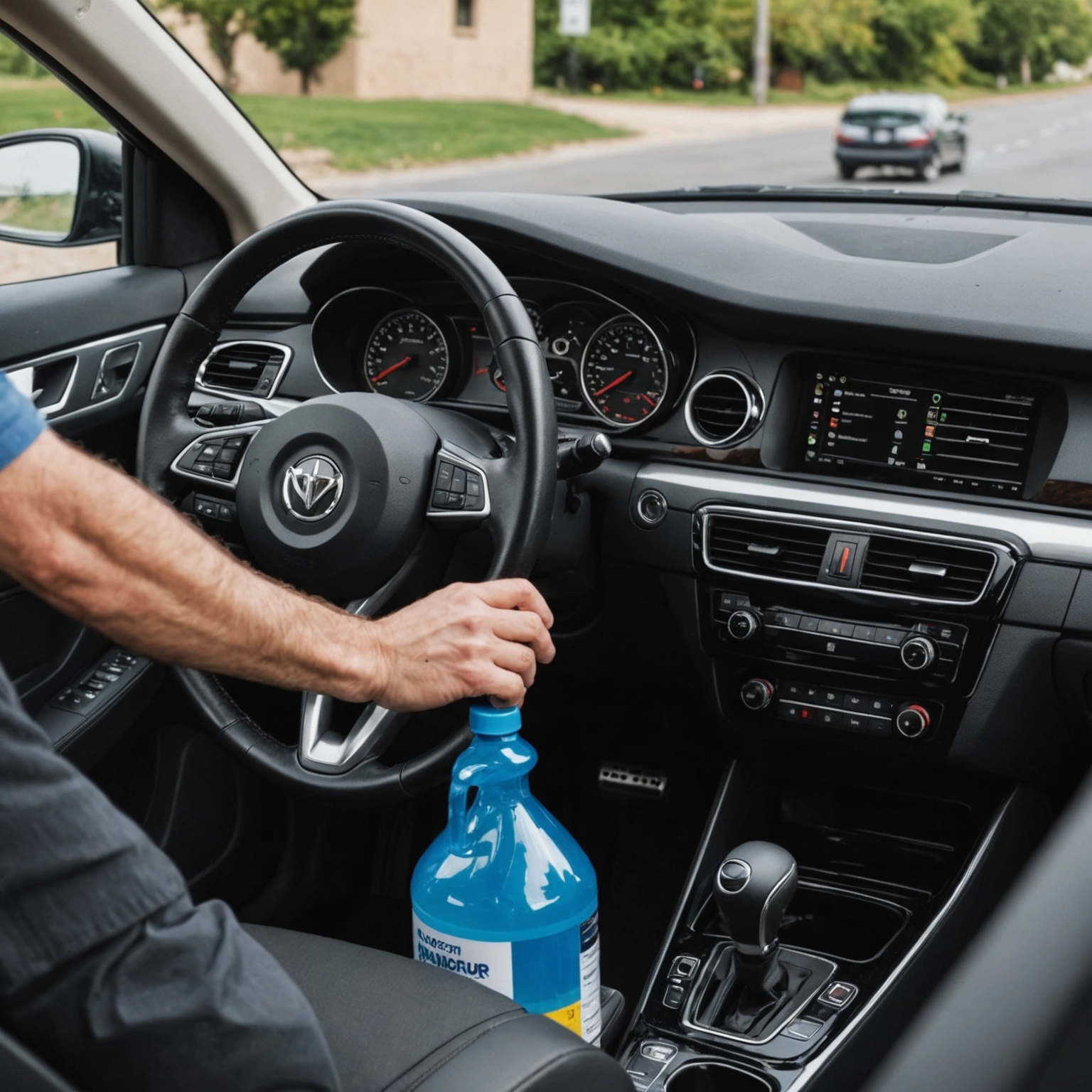**Why Does My Car Smell Like Vinegar? Understanding the Causes and Solutions**
If you’ve stepped into your car and been hit with a strong, pungent vinegar-like odor, you’re not alone. This unusual smell can be perplexing and uncomfortable, but understanding its cause can help you address the issue effectively. Here’s what you need to know about why your car might smell like vinegar and how to resolve it.

### Common Causes of a Vinegar-Like Smell in Your Car
1. **Mold and Mildew Growth**

– **Why it happens:** Moisture accumulation is a primary culprit. Leaks, high humidity, or spilled liquids can create a damp environment that fosters mold and mildew growth on carpets, upholstery, or air conditioning components.
– **Vinegar smell:** Mold and mildew often produce a sour, vinegary odor, especially when they begin to decay or when the air conditioning system is running.

2. **Clogged or Dirty Cabin Air Filter**
– **Why it happens:** Over time, the cabin air filter traps dust, pollutants, and moisture. If it becomes clogged or moldy, it can emit a sour or vinegar-like smell when the HVAC system is in use.

3. **Vinegar or Similar Substances Spilled Inside the Car**
– **Why it happens:** Accidental spills of vinegar, cleaning agents, or other acidic liquids can leave behind a sour smell that lingers.
4. **Air Conditioning System Issues**
– **Why it happens:** Bacteria and mold can develop inside the air conditioning evaporator coil or ductwork if the system isn’t maintained properly. When the AC runs, these odors can be blown into the cabin.
5. **Chemical Contaminants or Cleaning Products**
– **Why it happens:** Using certain cleaning agents or chemicals that have a strong vinegar-like scent can sometimes leave residual odors that persist.
### How to Address a Vinegar Smell in Your Car
1. **Inspect for Moisture and Leaks**
– Check door seals, window seals, and the sunroof for leaks.
– Look for damp carpets or upholstery, especially after rain or washing.
2. **Replace or Clean the Cabin Air Filter**
– A dirty or moldy filter can be a significant source of odor.
– Replace it according to your vehicle manufacturer’s recommendations.
3. **Clean the Interior Thoroughly**
– Vacuum carpets, seats, and mats.
– Use a mixture of water and a mild cleaning solution or specialized automotive interior cleaner.
– Wipe down surfaces and consider using an odor-neutralizing spray.
4. **Deodorize the HVAC System**
– Run the AC on high with the windows open to dry out any moisture.
– Use an HVAC cleaner spray designed for automotive systems to disinfect and deodorize the evaporator coil.
– Consider professional cleaning if the odor persists.
5. **Address Moisture Sources**
– Repair any leaks promptly.
– Use moisture absorbers like silica gel packs or commercial desiccants inside the vehicle.
6. **Consider Professional Help**
– If the smell persists despite your efforts, consult an automotive technician or upholstery specialist.
– They can perform deep cleaning or identify hidden sources of moisture and mold.
### Preventative Tips
– Regularly clean and vacuum your vehicle interior.
– Keep windows and doors dry and sealed.
– Use moisture absorbers if you live in humid climates.
– Change the cabin air filter as recommended.
– Promptly clean up any spills, especially acidic substances like vinegar.
—
**In Summary**
A vinegar smell in your car is often related to mold, mildew, or bacterial growth caused by moisture buildup, or it can stem from a contaminated HVAC system or spilled substances. Addressing the root cause involves thorough cleaning, moisture control, and possibly replacing filters or professional cleaning. Regular maintenance and prompt attention to leaks and spills can help keep your vehicle smelling fresh and odor-free.
If you’re ever unsure or if the smell persists despite your efforts, consulting a professional mechanic or auto detailer is the best course of action.

